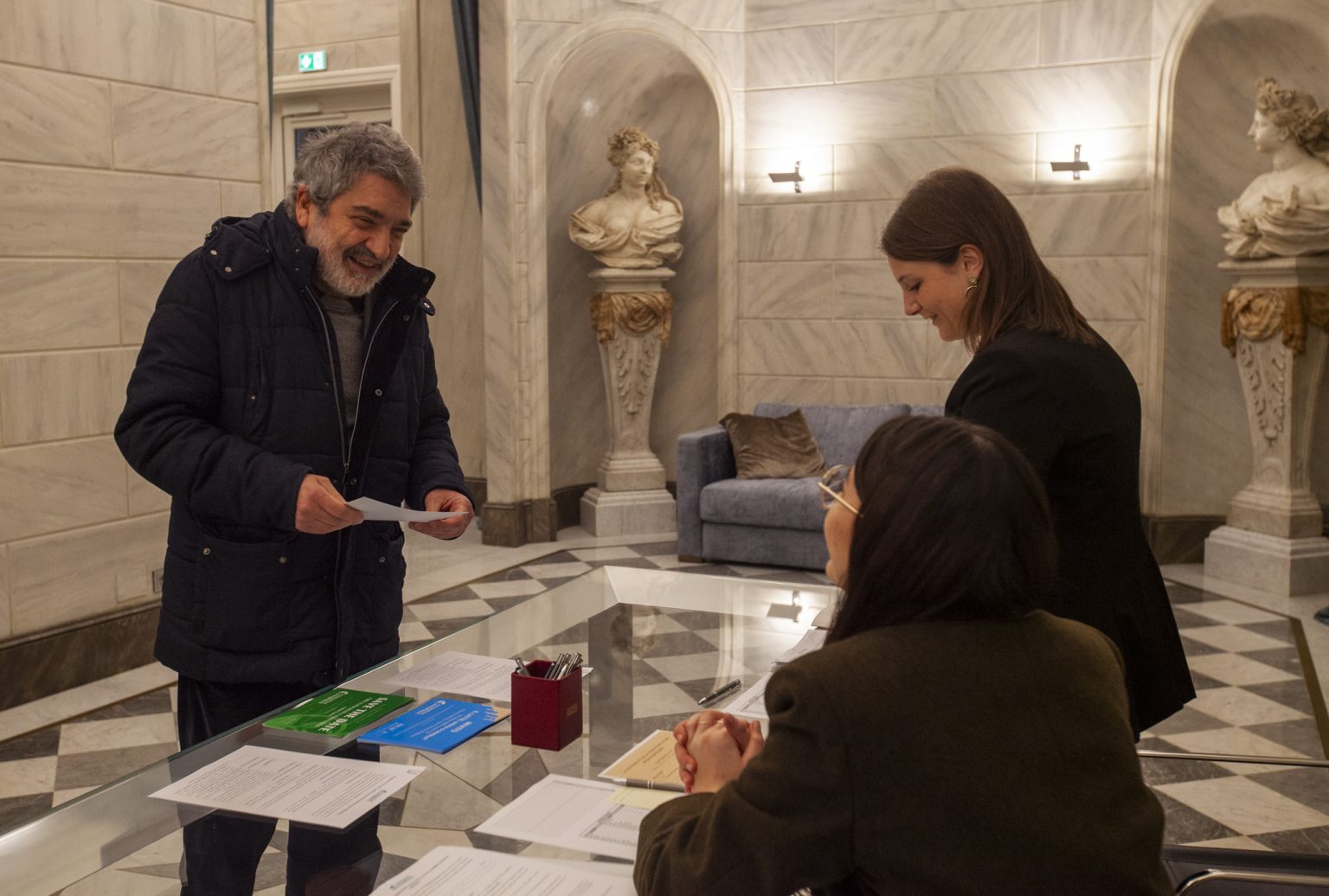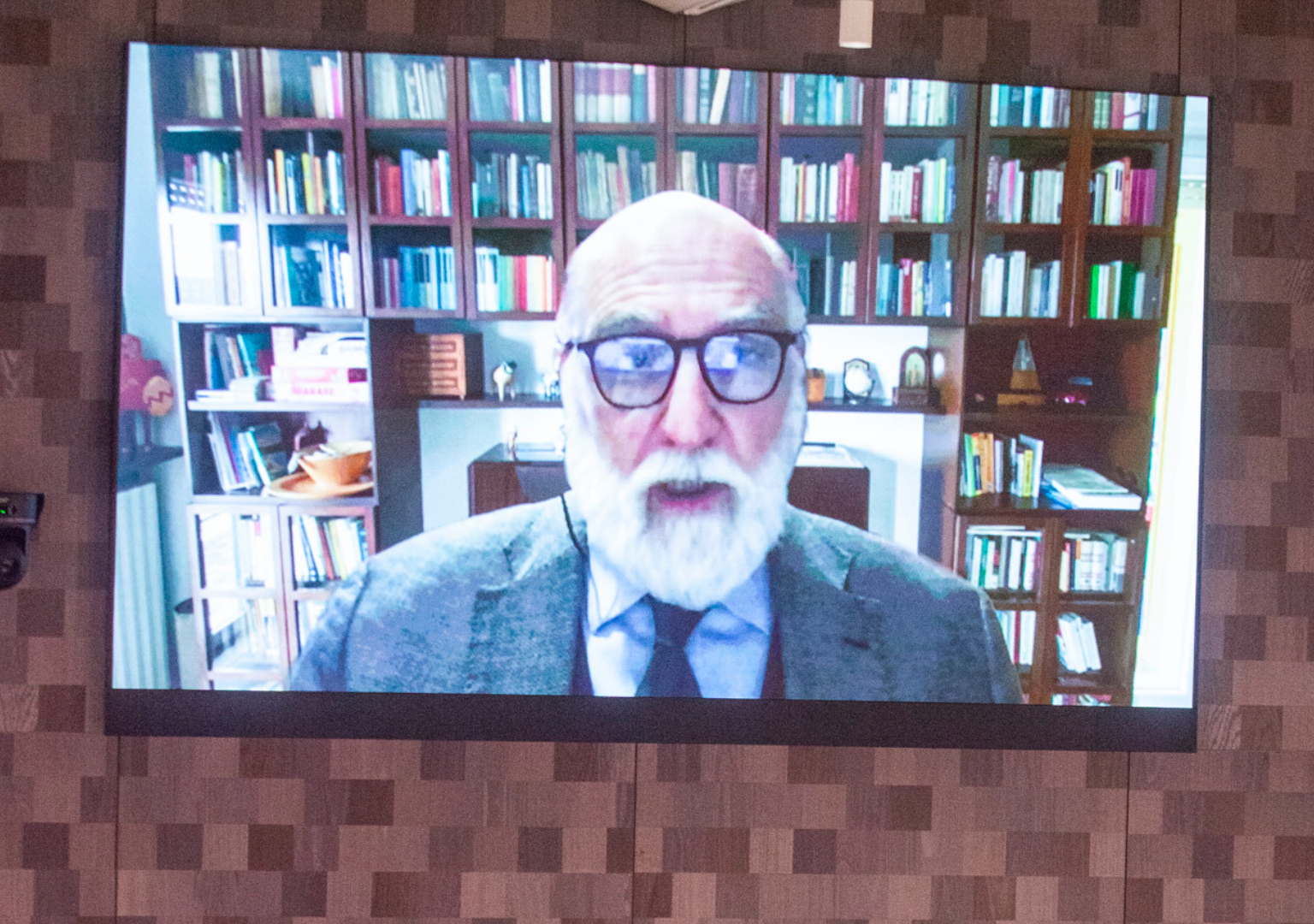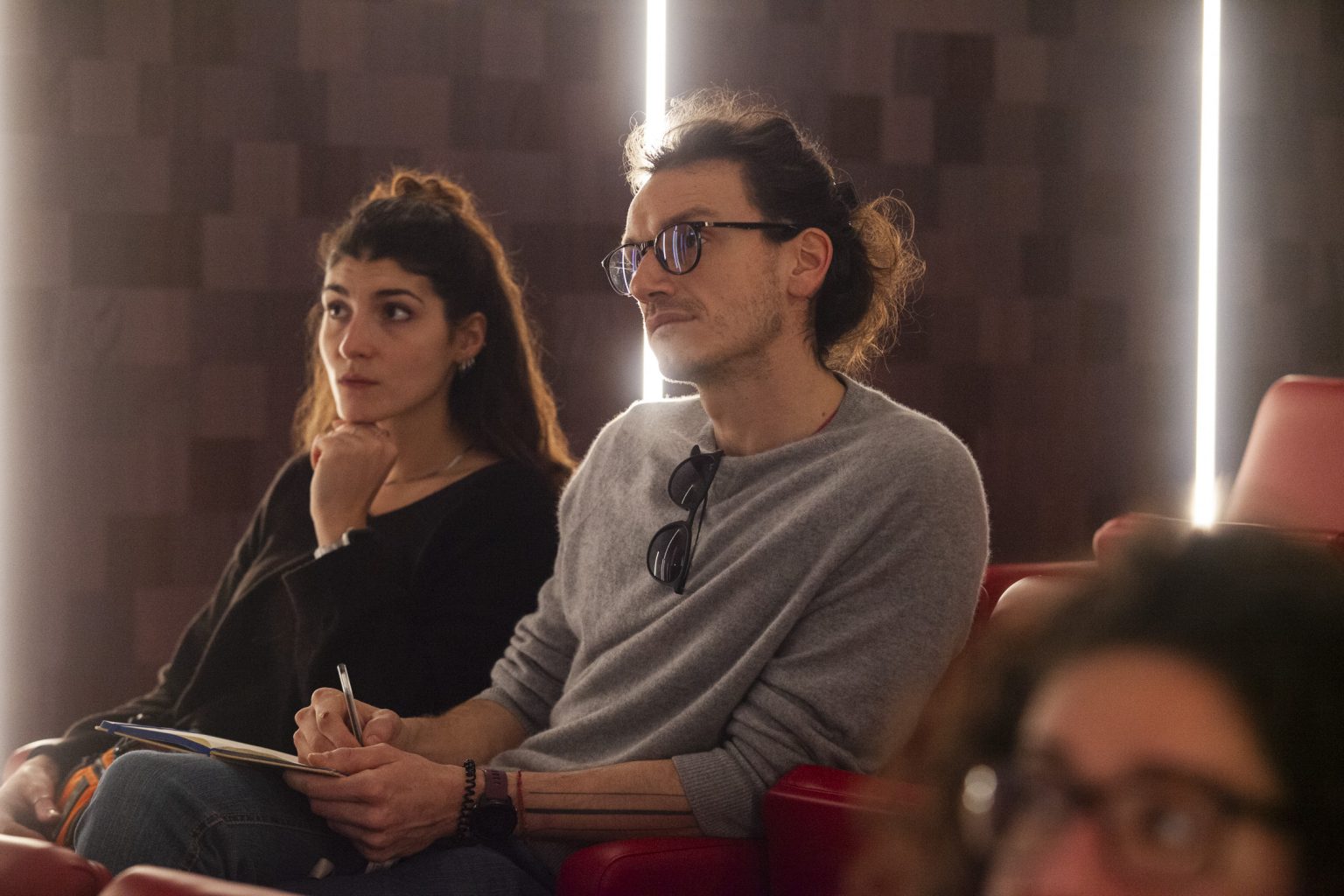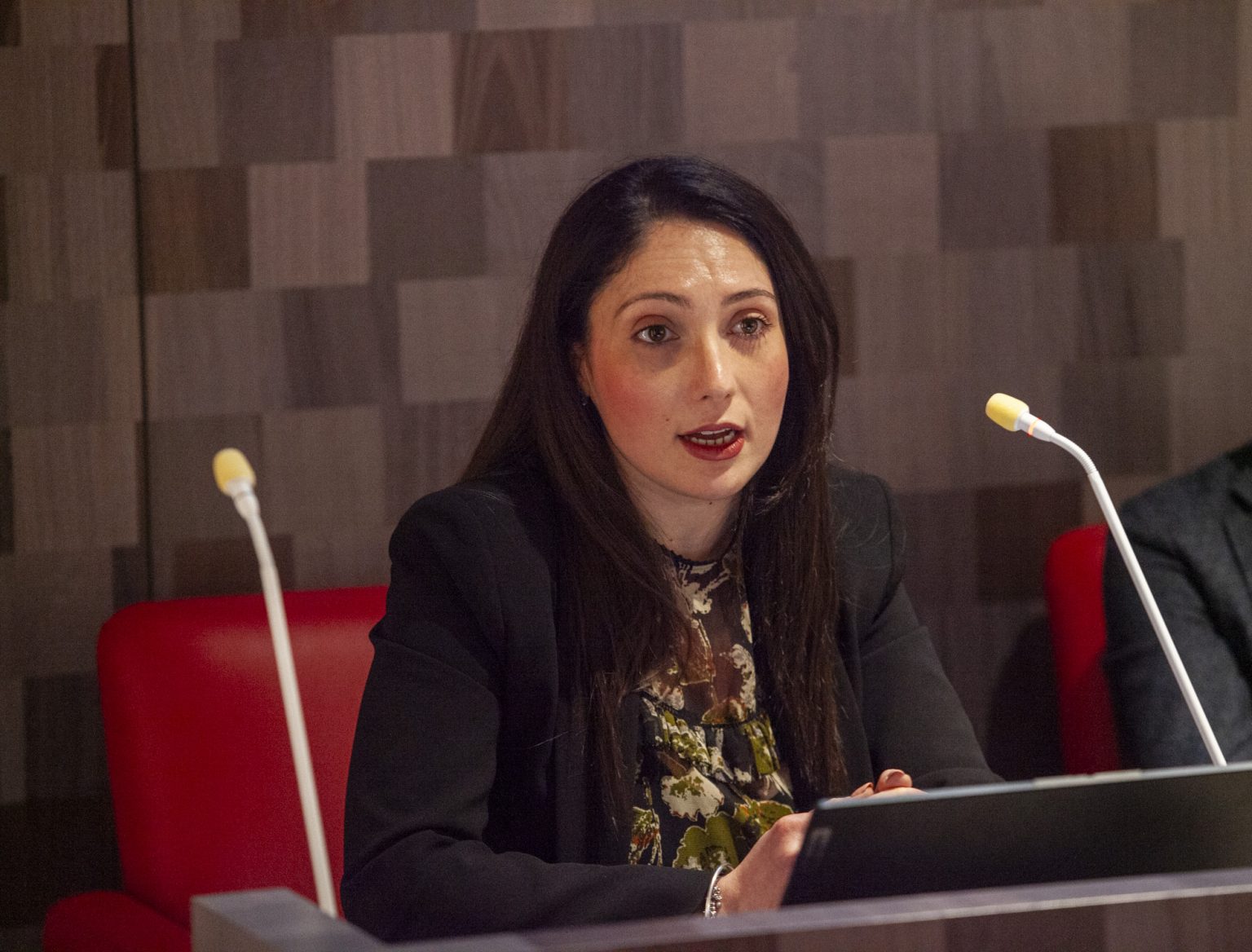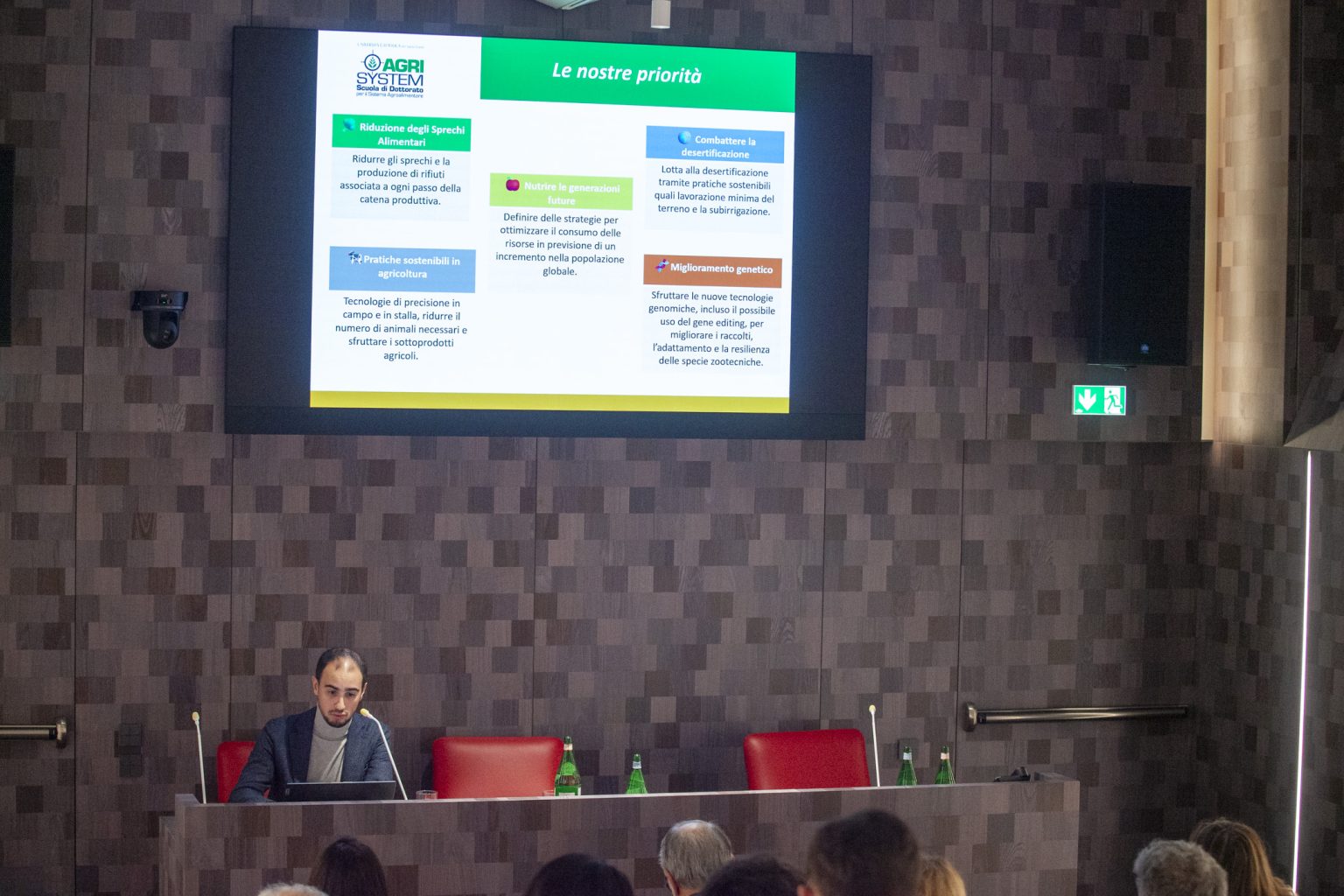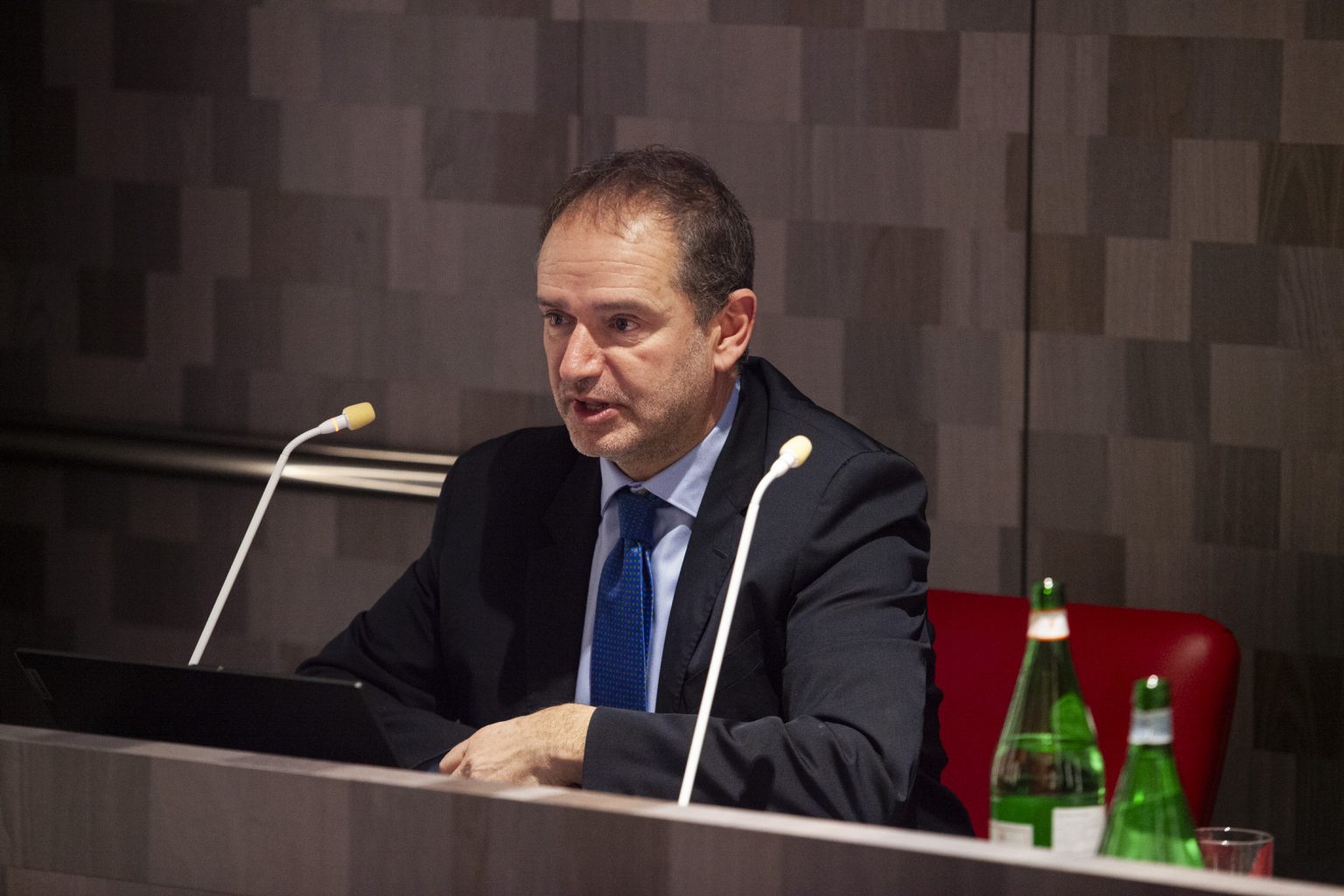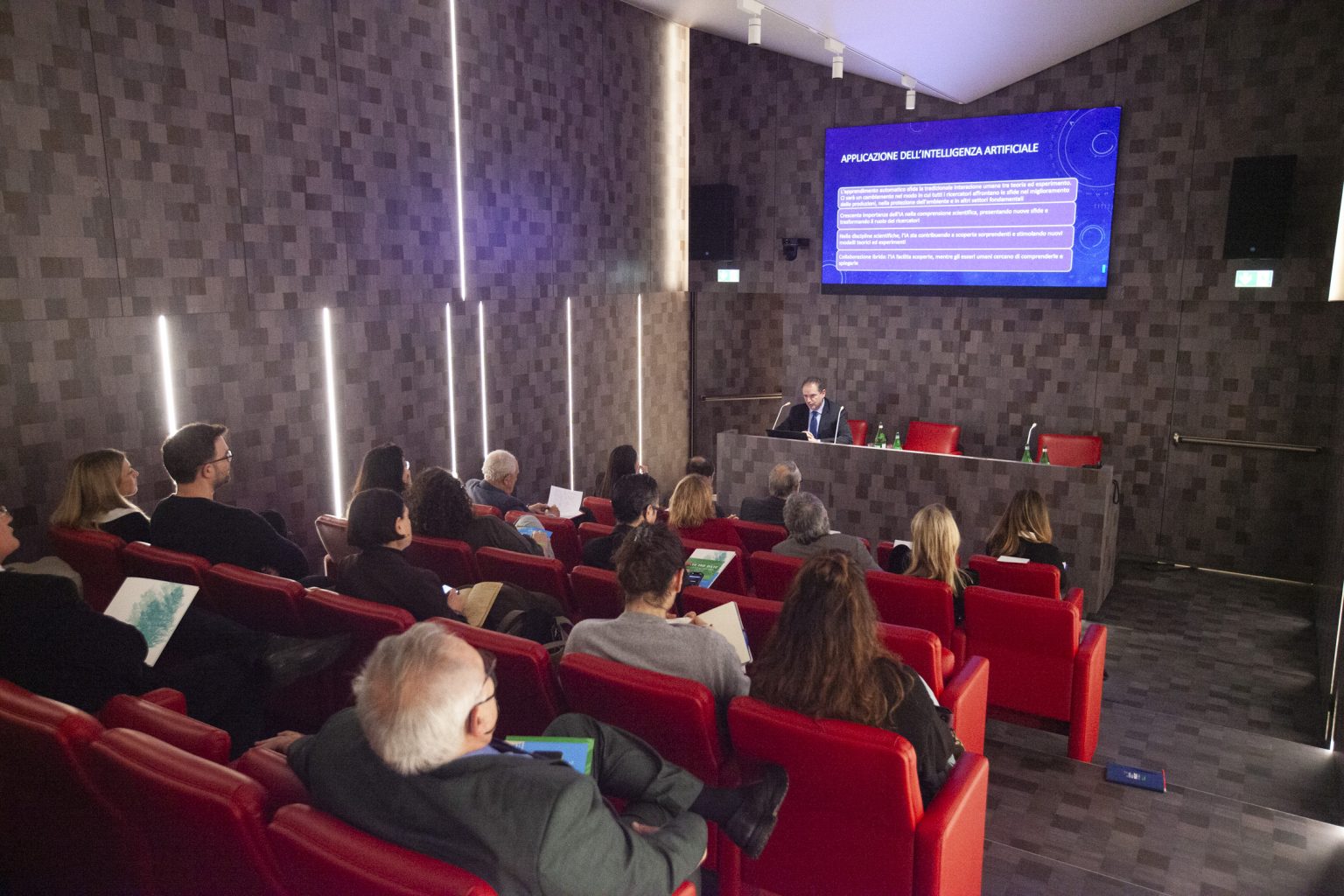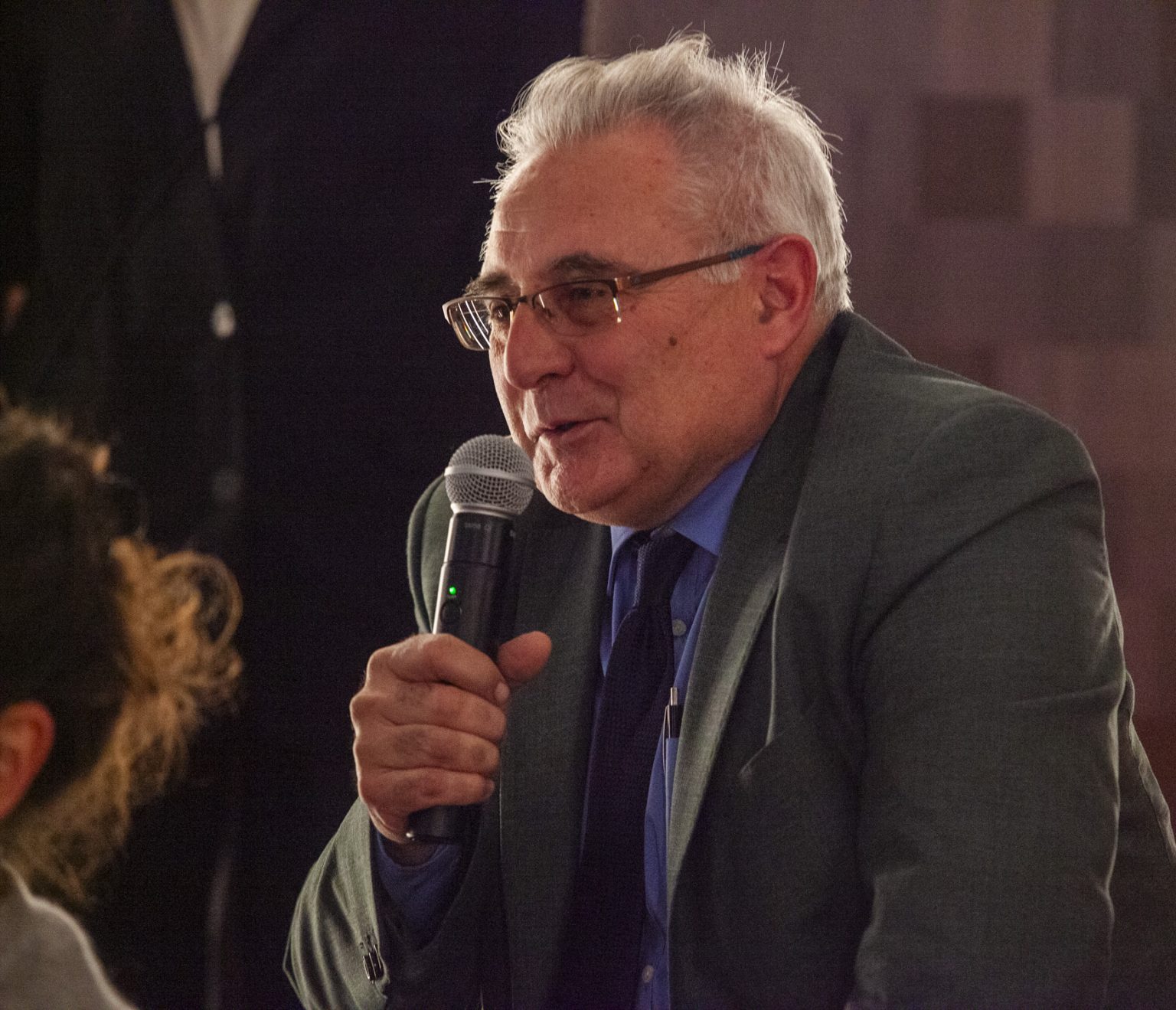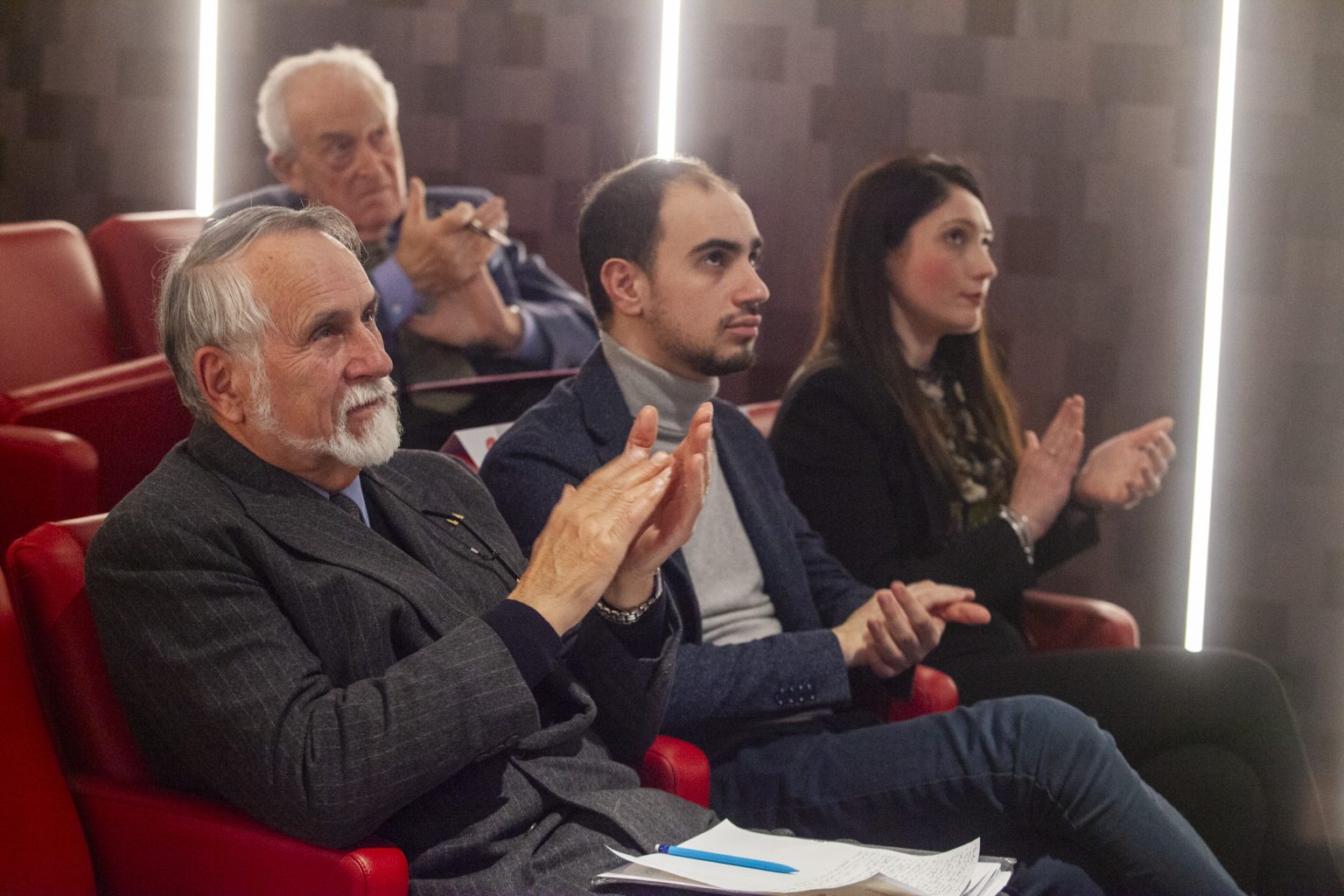The Sustainability of Food Production - Mission Impossible?
28th January 2025 – How to improve the future
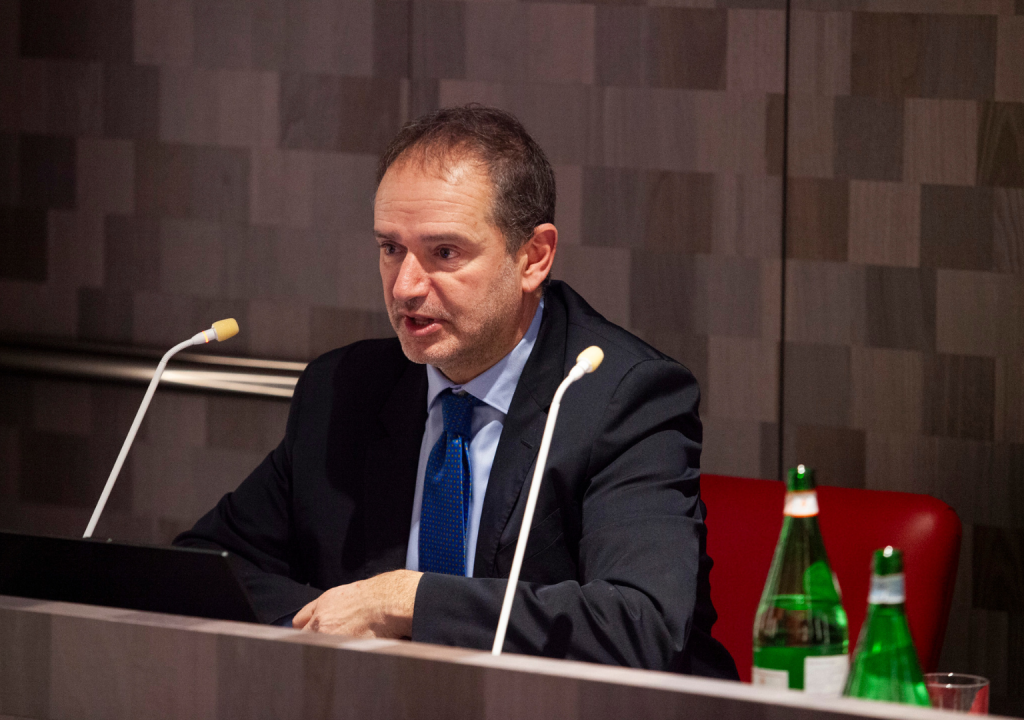
On Tuesday, Jan. 28, the conference entitled “La sostenibilità della produzione di cibo. Mission impossible?” (The Sustainability of Food Production. Mission Impossible?) was held at Palazzo Invernizzi Conference Centre. The event was organized in collaboration with Prof. Paolo Ajmone Marsan, Director of the AGRISYSTEM Agribusiness System Doctoral School, and Romeo and Enrica Invernizzi Research Centre for Sustainable Dairy Production - CREI of Università Cattolica.
The conference featured several expert in the field: Prof. Giuseppe Bertoni, President of Fondazione Invernizzi; Prof. Paolo Ajmone Marsan, from Università Cattolica del Sacro Cuore, who moderated the debate; Mr. Maurizio Martina, Deputy Director-General at FAO; Mrs. Maria Antonietta Palumbo and Mr. Simone Morabito, PhD candidates at Università Cattolica del Sacro Cuore; Mr. Andrea Rosati, Secretary General of EAAP - European Federation of Animal Science and Monsignor Fernando Chica Arellano, Permanent Observer of the Holy See to FAO-IFAD-WFP.
The idea for this conference stemmed from a recent in-depth discussion held by a group of PhD candidates from the AGRISYSTEM PhD School at Piacenza Università Cattolica. The theme was “Feeding the Next Generations: An Interdisciplinary Challenge for Sustainable Solutions”. The topic is particularly relevant, considering that global food demand is expected to have a 30-40% increase by 2050. Even today, the agri-food system, especially intensive farming, is considered to be one of the main causes of environmental degradation. For obvious reasons, these issues are of great interest to younger generations, hence it is crucial to understand their perspectives in a context where media coverage (web, media, newspapers) does not always present a balanced view of the relationship between food production and environmental preservation. It is also important to compare such perspectives with those of institutional bodies (FAO), scientific research, and even the Catholic Church.
In his opening remarks, Mr. Bertoni, President of Fondazione Invernizzi, posed a key question the speakers sought to answer: “Is the risk for human beings posed by technological and scientific progress (i.e. intensive systems)? Or by enormous needs driven by population growth and increasing demands?”.
An interesting comment came from Maurizio Martina, speaking remotely from Brussels, who emphasized the importance of interdisciplinarity and data sharing to prevent, monitor, and control the spread of diseases, as well as to address climate change and food accessibility. Food security is indeed a sensitive geopolitical issue, requiring international mechanisms since these challenges transcend national borders.
The concept of interdisciplinarity was also pinpointed by PhD candidates from Piacenza and Cremona Faculty of Agricultural Sciences of Milan Università Cattolica del Sacro Cuore. Drawing from their team-building experience in Val Rendena (Trento - Italy), they explained that working on agri-food issues requires collaboration with disciplines such as psychology, economics, and engineering. They also emphasized the need to place well-trained experts in leadership positions in those fields. “Collaboration between different disciplines fosters innovation and the search for effective solutions,” they stated, “and creating a network of researchers is pivotal to tackling the issue from multiple perspectives".
“Young people must be the protagonists of change,” declared Monsignor Chica Arellano, underlining that “a shift in mindset is really hoped-for”. He echoed Pope Francis' concept of integral ecology, reminding attendees that achieving “Zero Hunger” largely depends on the political will of those responsible for ensuring food distribution.
A key intervention came from Andrea Rosati, Secretary General of EAAP, whom at the end of his speech, outlined feasible and unfeasible solutions to answer the question posed by the conference: “Is sustainable food production possible?”. Rosati identified two viable approaches: reducing food waste and investing in technological progress. However, he emphasized that technological progress alone is insufficient without public engagement, education, and political support. It is also crucial to balance environmental protection with economic profitability and to make responsible investments in the sector.
Paolo Ajmone Marsan concluded and summarized the conference by pinpointing that solving environmental issues requires global collaboration: climate change, as well as pandemics, knows no borders. Agriculture is heavily impacted by climate conditions and must not only mitigate changes, it will also have to adapt to them to ensure efficiency and sustainability. Sustainable intensification will become necessary to feed 10 billion people, and the appropriate use of new technologies and artificial intelligence will be crucial. However, this will have to be guided by responsibility and strategic vision. Technology transfer to developing countries will also be pivotal to produce more with fewer resources. However, this must be guided by responsibility and strategic vision. Technology transfer to developing countries will also be essential to produce more with fewer resources. Changes required will have to be supported by appropriate agricultural policies that also consider social impacts. The “Mission” is ambitious, but in this “year of hope,” we cannot deem it to be “Impossible.” It is essential to trust and empower young people, encouraging them to develop their talents and build international and interdisciplinary networks.

